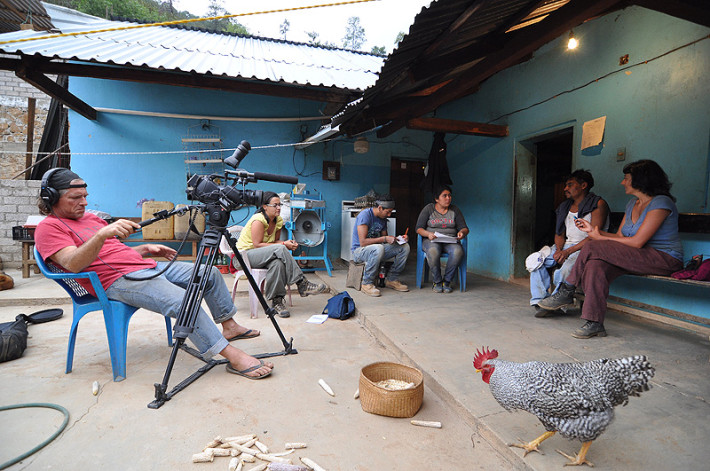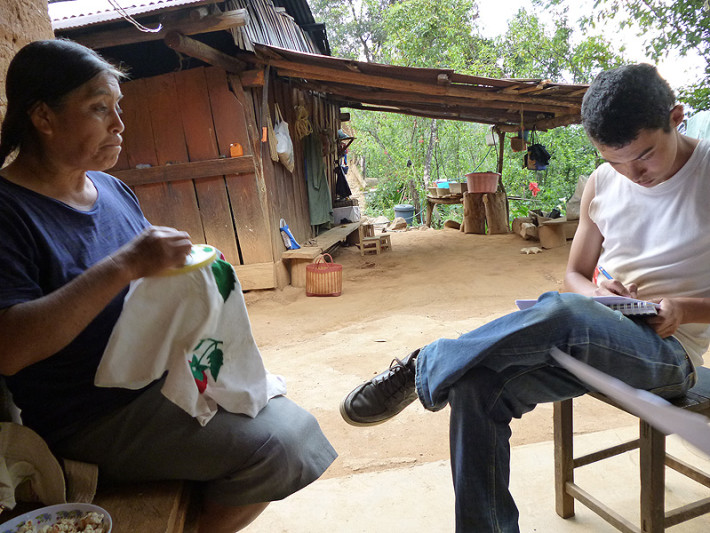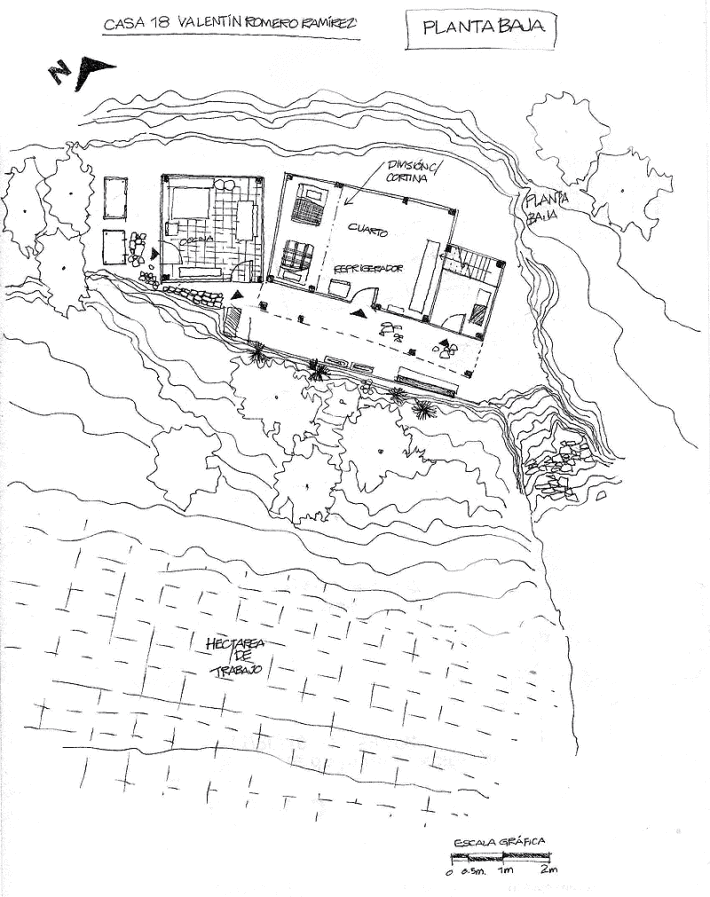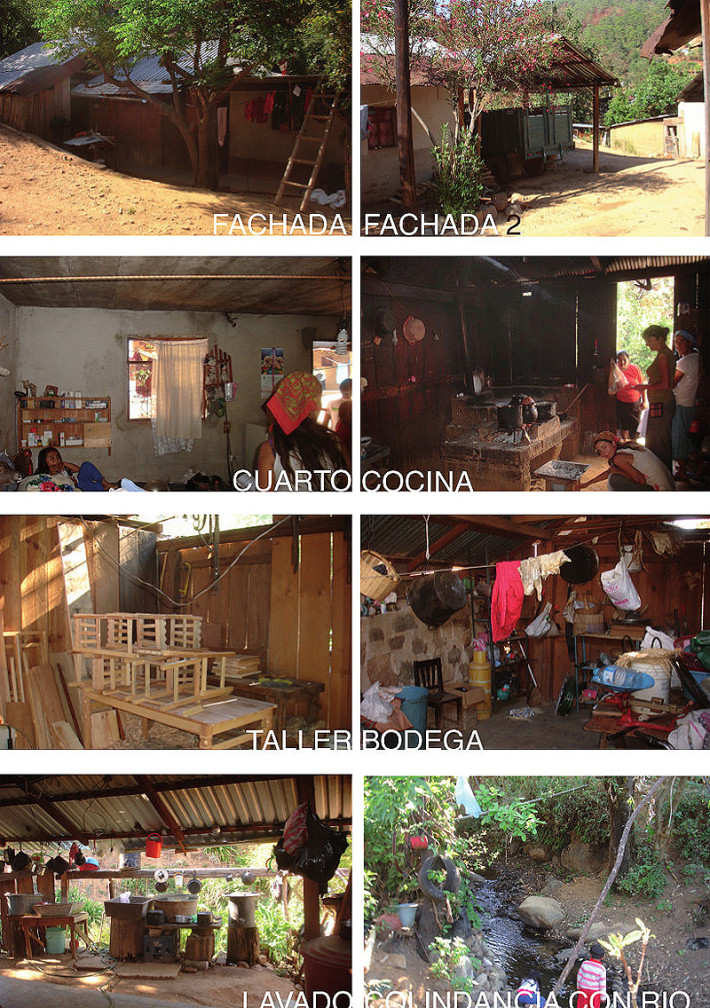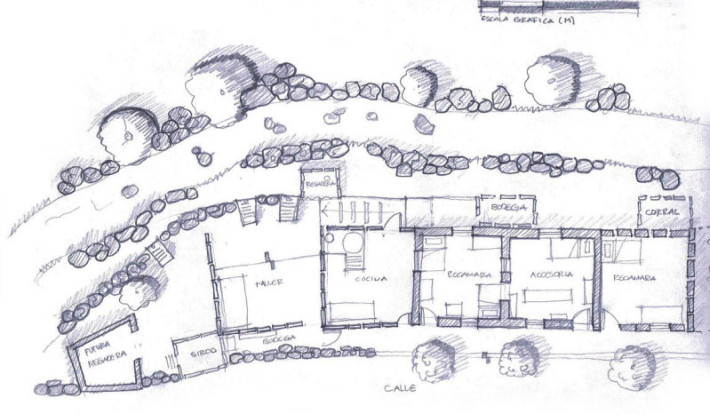Archintorno participated in the survey, “Understanding Emerging Lifestyles and Housing Cultures in the Community of Pensamiento Liberal Mexicano: An Household Survey”, working with 16 students and community members from 30 households.
![]()
![]()
PROJECT FACTS
Field research site: Pensamiento Liberal Mexicano, Valle Central. Oaxaca MEX
Elaboration of data site: Taller Max Chetto, UNAM-Universidad Nacional Autònoma de México.
Client: Centro de Apoyo al Movimiento Popular Oaxaqueno (C.A.M.P.O.), Secetarìa de Relaciones Exterióres de México (SRE)
Year: 2012
Research methodology: judgement sampling, semi-structured qualitative interview, exploratory data analysis, classification of the households into typologies
Research coordinator: Dr. Roberta Nicchia (Archintorno)
Number of students participating in data collection: 12 from Universidad Nacional Autònoma de México (UNAM) and 4 from Politecnico di Torino
Number of students participating in the elaboration of data: 3 from UNAM
Households involved: 30
Local partner: C.A.M.P.O., Oaxaca, Mexico
Major funding: Associazione Archintorno, SRE
Patronage: UNAM, Politecnico di Torino.
The household survey in Pensamiento Liberal Mexicano aimed at understanding factors that influence the election of (or the aspiration towards) housing typologies and building technologies in the indigenous communities of the Oaxaca State, as well as the factors that determine the physical organization and management of the territory.
Moreover, the survey represented an opportunity, for the international students involved in the construction of the “micro-regional center for technology innovation”, to deepen their understanding of emerging lifestyles and housing cultures in the host community. Thirty households, almost one over five families of Pensamiento, were interviewed by Mexican and Italian students around six main themes:
• family history and family composition
• subsistence strategies
• national and international migration
• relation with other urban and rural centres
• access to socio-cultural resources
• use of natural resources
• perception of life conditions
• housing typologies and building technologies.
In particular, housing compounds were deeply analysed through graphic and photografic surveys and through direct questions to the owners/self-builders. Data was elaborated according to an holistic approach and households were classified into four typologies, each representing a different social group, with a different lifestyle. From the survey, the results indicate that the housing typology is a reliable indicator of the social group the family belongs to. Housing typologies are the product of a complex decision-making process, that is influenced by a wide range of factors, such as monetary income and main economic/subsistence activities of the family, experiences of migrations towards Mexico’s major urban centres and USA, security and thermical comfort of building technologies, morfology of the housing plot and – not least – personal aspirations and tastes.

